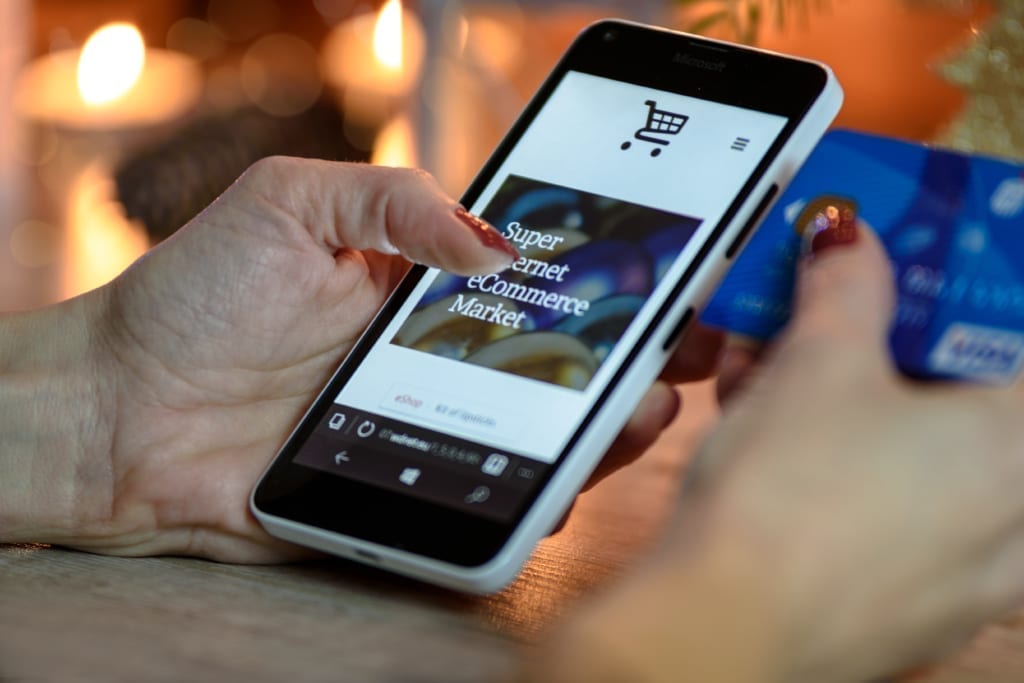So you own a small business, and things are chugging along nicely. But you want to grow it all the time right? There is always something to improve. Ways to reach more customers or improve existing ones’ loyalty. Today, one of the most essential and affordable channels for achieving this is app building. A small business owner who has an app for their business is a business owner who takes the right steps to grow her/his business. But how to go about it? What are the secrets of the art of small business app building?
Table of Contents
- A Mobile World
- Why Have an App?
- Ok, So App Building Is a Great Idea for a Small Business Owner, But How to Do It?
- What are my options for app building?
- So the App Makers are Pretty Great Then? But Why?
- Conclusion
A Mobile World
Today there is a smart device or two in just about anyone’s pocket. Mobile devices easily outnumber computers now. “There is an app for that” may be an old slogan. But that’s only because it is now the norm rather than a novelty. Today, we already expect there to be an app for everything we can think of. So much that, if we discover that one of our favorite companies do not have an app, we tend to be surprised. And not pleasantly at that… So when your customers think of your business, you want there to be an app for it too. Both today and the future are in the mobile world, and it is time to catch it.
Though, the business app building can be an unfamiliar road with ups and downs. Therefore it is understandable if you find it to be daunting at first. Do not worry though, we will guide you over the hills and around the pitfalls in this article. Let’s go ahead with our guide to small business app building:
First off, Why Have an App?
A few years ago, we would have answered: “because the future is mobile.” That answer is obsolete now. Because everything is already on mobile today. Every day, more and more of the internet access moves from desktop devices to mobile ones. Majority of social media use, online shopping, and even gaming have been moving towards our smart devices. Most importantly for you, the small business owner, most of the customer engagement is happening in the mobile world too.
In the future, it will only grow more. In most of the largest western markets, the mobile apps have become the main venues for e-commerce. Rest of the world is catching up fairly quickly as well.
As for the benefits of mobile apps for small business owners, we’ll just have to say that they are too big and too many to overlook. Let’s count some of the more prominent advantages a mobile app can provide for a small business owner…
Power of location services:
Thanks to location services of mobile devices, you can offer your audience services based on their location. For example, you can get your users to check out one of your stores when they are nearby. Offering location-specific discounts is another option to benefit from this powerful ability. If your users allow their location data to be used for such purpose, you can also gather statistics about what venues they frequent or what times do they usually visit your stores etc.

There can be side benefits as well. Let’s suppose you want to open a stand to do some marketing out there in the streets. You want to know where does your target audience frequently visit right? Well, thanks to location services, you can have a pretty damn good idea!
Reach out to your customers – Push notification messages:
Perhaps the most powerful feature offered by mobile apps is the push notifications. These are notification messages that you can send to the users of your app. They can remind your users of your app and hence increase user engagement. You can also use them together with location services to notify users of location-specific offers or events. The beauty of push notifications is that you can specifically target which individual or group of users will receive a message. This is probably one of the greatest advantages mobile apps have over mobile-friendly websites, as the latter lack this ability.
Do not think that the push notifications are just another type of text communication no different from others. Push notification messages have a much greater rate of getting actually read and acted on by the users. An e-mail usually just gets deleted without even opening it, that is if it doesn’t fall to the spam folder in the first place. SMS messages are not much different, if not worse. With push messages, you can call your users directly to an action, or lead them to a specific screen in your app. Yes, that’s right, push messages also can take your users to your app, increasing its rate of usage.
Mobile payments:

Mobile payment is a great convenience for both you and your users. The internet browsing habits lean more and more towards the mobile every day. The users like being able to process their purchases on their devices. Your mobile app can offer a secure and easy way for transactions between your business and your customers. Therefore this technology is a win-win for both parties. Your users can browse your products and services through your app, why shouldn’t they be able to purchase them then and there too?
Whether through a secure credit card payment system, a payment service like PayPal, or through the carrier, being able to pay through the app is convenient for the user. Therefore it can increase the sales you can make with the mobile app.
Apps can benefit the users too, therefore increase the customer loyalty:
Loyalty programs benefit both customers and the business owner. Allowing points and rewards to customers for their patronage makes them happier. For you, the small business owner, happier customers mean loyal customers. Gamification can be powerful incentive to keep people doing something. The points they can earn through your loyalty programs can get your users to use your services more to earn even more points.
There are many ways to implement a loyalty program. But mobile apps are certainly among the best.
You can print loyalty cards that get stamped every time they shop from your company but, who cares about cards these days? Besides, if your business is more technology oriented this kind of loyalty tracking often just is not compatible. A website is another option and certainly a good one. But it needs the user to specifically look for the page, and load up a browser.
A mobile app always by the users’ side, as people rarely leave their phones away from themselves even for a short time. Furthermore, you can get them to check the app, or remind them of their loyalty points thanks to the ability to send push notifications.
When you consider it, before the mobile apps a customer loyalty program that reaches large audiences wasn’t cheap. Often, it was something that only larger businesses could afford. Now with a good mobile app, it is well within the reach of a small business too.
User Engagement:

The mobile apps are a two-way gate of communication between you and your customers. Through apps, users can interact with your business anytime and anywhere. Similarly, you can reach out to them with the power of notifications, as well as the content you can publish through the app. We are living in an age where everyone and every entity is connected. Communication is taken for granted, yet also paramount to the success of any endeavor.
Through the content you publish on it, your app can notify your users of latest news, services, products or sales your business has on offer. Or you can use push notifications to remind your users of yourself.
The users, in turn, can use your app to send your company feedback, comments, and messages. Better yet, they can even order your products and/or services through the mobile app. You can also set game-like goals and rewards in the app experience. This can motivate users to further engage in your app and incentivize them to take some tests or order some of your wares. With users engaging in such activities and earning little rewards, customer loyalty comes all by itself.
Another benefit for the users is that your app can act as a direct channel for customer support. They can communicate their wishes or problems conveniently through a contact form in your app. This can allow you to keep an organized catalogue of requests and have an archive of them to see most frequently encountered issues.
One more great thing about customer loyalty and the mobile apps is that they feed each other. Offering benefits to users who download your app will increase the recognition and use of the app. And offering further campaigns and bonus programs inside the app will encourage your users to do more business with you.
Cheap marketing and publicity:
The mobile apps are, and has long been, a powerful tool for marketing.
Having an app can open up many ways for you to promote your products, services or campaigns with a fraction of what you would spend on traditional marketing methods. Your app constantly reminds the users of your business. Even if your app is merely installed on a user’s device, it is still there to see. A web link, SMS or TV ad will not have the same constant visibility. As the old saying goes, “out of sight, out of mind”. However, if you can get users to download your app, you will not have to worry about your business becoming out of their sight.
If you can get them to regularly use the app, even better! This way you can always keep their interest in your business at a high level. You can utilize the power of push notification messages to ensure this. With the content you will share in your app, you can promote your sales, new products or services, and loyalty programs.
Another option is to make use of guerilla marketing. Indeed, mobile apps and guerilla marketing can mix together fabulously well. Place some flyers with your app’s download links in a QR code, offer benefits to those who download it, and watch the awareness of your business grow for a fraction of the cost for traditional marketing channels.
Statistics, statistics, and more statistics!
Knowledge is power. Especially so in the world of business. There is a multitude of tools to analyze user behavior in your app. They can provide you with a wealth of data. Through the understanding of such data, you can know your customers better. As you plot a map of their behaviors, preferences, and desires, you can also plot a more efficient path for your small business. A path that may even lead to becoming a not-so-small-anymore business.
You are, after all, a small business. So, chances are you have limited resources that need to be spent carefully, and on the right things. This requires the knowledge of what those things are.
Location services, app analytics, seasonal app usage behaviors and many more can be learned by taking the right steps in tracking app data. Through the analysis of such information, you can understand your customers better, and act accordingly. This way, you will be able to allocate your limited resources much more effectively to where they will provide you with results.
Ok, So App Building Is a Great Idea for a Small Business Owner, But How to Do It?
There are many ways to go about app building for your small business. They all have different ups and downs, as well as (wildly) different costs. For more information, you may want to read our article on these costs.

There are quite a few things to know and to get right. So you should not just blindly wade into it. First, have a strategy. Like we have said before, as a small business you probably do not have a huge budget to spare. Even if it is not particularly small, you still do not want to just throw it around randomly. No budget is large enough to just burn off on an ill-planned effort. Plan ahead how an app will fit in with your business offer(s). How can it cement the connection between you and your target audience? What value can it provide to your customers, and to you, the business owner?
Don’t forget that the user experience in the app will decide the shape of how they feel interacting with your business. Speaking of shaping, your app building strategy will also outline where you will take your design and development of the app. Once your strategy is in place, you will need to decide how will you go about creating an app. Before all else, you will need to know what it takes to create a successful app and how to make sure that success will last.
As a small business owner, you have a few additional points to consider, so that all your channels of communication, marketing and business are integrated.
There are yet other issues to consider about the design and features of the app so that it can add value to your business. Let’s have a look at those, shall we?
Embrace the Power of the Dark Si… Errr I Mean the Social Media!
Today the social media channels are one of the most important scenes for publicity and communication. That is beyond any shadow of the doubt. Regardless of whether you consider it to be a kind of addiction and time sink or the greatest thing ever came from the internet, the fact is that your business needs to have a presence in it.
The most basic step is to allow sharing of your in-app content. Your users can instantly share your wares, articles or promotions with their social network and essentially provide free brand visibility for you. You can incentivize sharing of your content on social media channels by running some giveaways that require content sharing for entry. That can allow you to increase your followers and get almost free publicity for the cost of a little gift.
It goes the other way too. You can promote your new mobile app on your social media pages so that your followers will know of it. It is not a bad idea to remind them of your app every now and then after its release too. This is basically free publicity, which is always good. Though you can boost your posts for a few bucks to get even more leads.
Provide Your Users with a Unique Value with the App
We have said above that apps can benefit your users too, and yours definitely should. At least if you want it to be used, and hence return the investment you put into it. Inform them, offer them discounts, share all the data they may seek on your products, just do whatever it takes to get your customers to use your app. Put yourself in their shoes, and ask yourself: “Would I use this app if I was a customer”. Try to be impartial. If you can not be so, ask your relatives, friends, even some of your customers.
Make sure your app building strategy envisions proper functionality that solves a problem for its potential users. Also, try to make sure that your app gives your users added value to make them come back to it time and again. This way, it can provide your small business with much-needed customer loyalty.
The happier your users are, the more likely they will be to make use of your business.
Have a Properly Fashionable, and Easy to Use Design
Times change, and so does the fashions of mobile app design. Make sure your app is fitting with them. One thing, however, does not change: Apps need to be user-friendly, and easy to use. I can not overstate how important this is. If your app feels like a physics problem, you can be sure 90 percent of your users will just remove it in a heartbeat.
MobiRoller provides you with templates that ensure both up to date and pretty designs, and a good user experience.

Also, consider the language of the visual design: Ideally, the colors, fonts, and images need to be similar to your brand’s image. Do not think that more visual elements mean a better look. The trend for apps have been the other way around for quite a while: the less is more. Simplicity is both trendy, cool looking, and most importantly, automatically user-friendly.
Now that we have gone over some of the features you need to consider for small business app building, let’s talk about how to go about actual app building phase:
What are my options for app building?
1- Create it yourself: Either build your own coder team or if you have the skills do it yourself. Perhaps even learn it yourself if you are not a coder. Do consider though, that this is probably the most adventurous and risky path. As a small business owner, ask yourself, do you have the manpower, time and budget to go on such an adventure? Chances are, the answer will be no. Probably a resounding no at that…Now to be fair, this approach does have some advantages. First, you can make the app almost exactly the way you want. I am saying almost, because if you are new in the business you probably will need to make compromises in getting the thing to work. Even if you are skilled, as a business owner you may not enough time and energy to make it exactly like you want among other tasks with higher priority.
If you go all in and create a coder team, there is still the risk of things get lost in dialog, misunderstood, and you end up with an elephant after asking for a horse. Still, you will be able to do it mostly as you want, and when an issue arises, or you want to update the app, you can do it. Thing is, app building requires technical expertise, and time, and often some midnight oil burning too. These things are expensive. Both in the terms of money and time. It may be affordable for mid to large size businesses. But for a small business, the risk of burying so much money and effort into something and not getting it right is just too big. Even if you do get it right, and reap the expected results, there are other options to give you the same results with less expense, effort, and headache.
A final thing to consider is the multiplatform availability. If you want your app to be available on both of the important mobile ecosystems (and you should!), things will get yet more complicated. Native development for Android and iOS are very different. Apps are coded with different programming languages and approaches. This essentially doubles your workload and costs. There are cross-platform libraries for app building that cover both Android and iOS with more or less a single codebase. But they are more specialized knowledge, and may sometimes have a few bugs and hiccups. Hybrid platforms, on the other hand, give you an HTML 5 output which gets rendered in a browser object in native apps. These usually allow you to develop with ubiquitous scripting languages. But their results tend to be not as tailored to the respective platforms. Also, the resulting apps themselves are rarely as powerful or fast as the native apps.
2- Hire a development company: These folks will (hopefully!) be skilled and experienced in the art of app building. Their code-fu can help you achieve your goals. When they can not, there will be an entity you can hold responsible. Though the communication can get iffy. Another thing is that this option usually is not too cheap. Often, the development process can get protracted. Some of the companies have very streamlined app building processes and can deliver on time. But they tend to be even more expensive. The problem of what you want and what the developers create being different is usually even more dramatic with this approach. Since the teams are separated by distance, communication is usually not immediate. You will either have to settle for premeditated meetings that take your presence and time from your own business or do it via phone or online communication methods. Former may or may not prove fruitful, and the latter just will not be as effective as face to face meetings.
Finally, the multiplatform issue is present here too. The company will either have to develop your app twice or use hybrid/cross platform libraries. Sometimes, companies may even develop for only a single platform, leaving you with options of looking for someone else or hire two different companies.
3- Contract a freelancer: For less comprehensive projects, a single freelancer or a small group of freelancers can often code an app for you in a cheaper way compared to development companies. However, it is worth mentioning that not all freelancing developers are at the same level. You need to make sure that they have done similar projects to yours before. Then you need to also make sure that those projects were successful, yielding a high quality product. Aside from these points, we can say that freelancers come with many of the same downsides as development companies: app building process can yield a product very different from what you really wanted. That is because of the fact that communication is still not seamless between you and your developers. If you can find the right freelancer though, this can indeed a good option. Though, as a small business owner, finding the right one may be more adventurous than what you would like. The multiplatform related issues apply here as well.
4- Create it yourself… with an App Builder: App maker platforms are another option. Here, you do not really need to create/hire huge teams of specialists. Nor do you need to communicate what you have in your mind as intricately and completely as possible. With these platforms, you are the developer. With monthly or yearly subscriptions, an app builder option like MobiRoller is by far the most affordable one.
We can hear some of you asking: “What is an app builder though”? Well, think of website building platforms like WordPress, Wix etc. Thanks to those, for most of your website needs, coding up from scratch is a thing of ancient history. You can build your web pages literally by clicking and dragging around components, add content with what you see is what you get editors etc. Gone are the days of looking around for decent web developers, or even employing them in your small business. You are the developer of your website now, and no coding skill is needed.
App builders bring the same flexibility to the world of mobile apps. You can create an app in just a few minutes. No coding mumbo-jumbo is needed. You can add modules, content, images, modify your menus, change design templates etc. just by clicking around in a user friendly panel. With up to date and high quality design templates, functional and stable modules that will meet your needs for building screens app makers have you covered! They save you from the hairiest issues of app building:
– Coming up with a user friendly and pretty design
– Coding your app in a fast and stable fashion
Finally, most app makers take care of multi platform app building issues for you. You design your app once, and then deploy it on both Android and iOS stores, as the platform builds native apps for you.
So the App Makers are Pretty Great Then? But Why?

First off, as we said above, it is the safest and most cost effective path for a small business. You can plan the costs yourself by choosing the right package and switching back and forth as well. If you want a successful app, you will need to make sure that the app is a high quality one. There are many things to consider for a high quality app.
A good looking and user-friendly interface is one of them. The user interface also needs to follow the current design trends for apps. MobiRoller has your back here. Our many design templates are custom tailored by professional designers. They provide you with the right base for a good looking and easy to navigate app. Customizability options that allow you to add branding, background colors and images, font settings etc give you the ability to fine tune the looks.
Another important issue for successful app building is to provide a stable, fast, functional and ever improving experience to your users. This requires a solid software architecture. Our modules are designed and coded with these qualities in mind. We have a skilled, dedicated and ambitious team of software engineers who keep improving the modules and add new ones. Therefore you will automatically have the other important ingredient for app success: always updating it.
Moreover, you are free from the hassles of (mis)communication with another team. You are the developer. App building has never been easier. You can see what you create in real time, and deploy the result to Android and iOS devices.
In Conclusion: Have Small Business App Needs? MobiRoller have You Covered!
Chasing after developers and having back and forths about bugs, miscommunications and revisions for web page development is already a forgotten thing. This is thanks to the what you see is what you get platforms such as WordPress and Wix. They give you the powers of a developer without the need for coding knowledge. Why should the mobile apps be any different?
Today, app makers allow you the same freedom for the app building. You don’t need to bother with intricacies of UI design, stable code, or multi-platform development. MobiRoller lets you create your app once, and publish it on both Google Play Store and Apple App Store. Moreover, it does that at a very affordable price. With all the technical mumbo-jumbo away, you can focus on what actually matters: to grow your business with a mobile app!
The best part is, it is totally free to try. You can just start building your first app right away. Unlike coding, which can take months, here you can have your Android app ready in just a few minutes. With upgrading to one of our premium packages, you also get iOS apps, support, and many more features.
Small businesses are the bread and butter of every economy, and we are happy to help business owners in remaining competitive in a mobile world.




